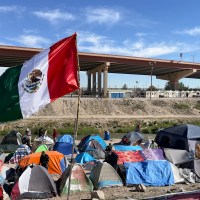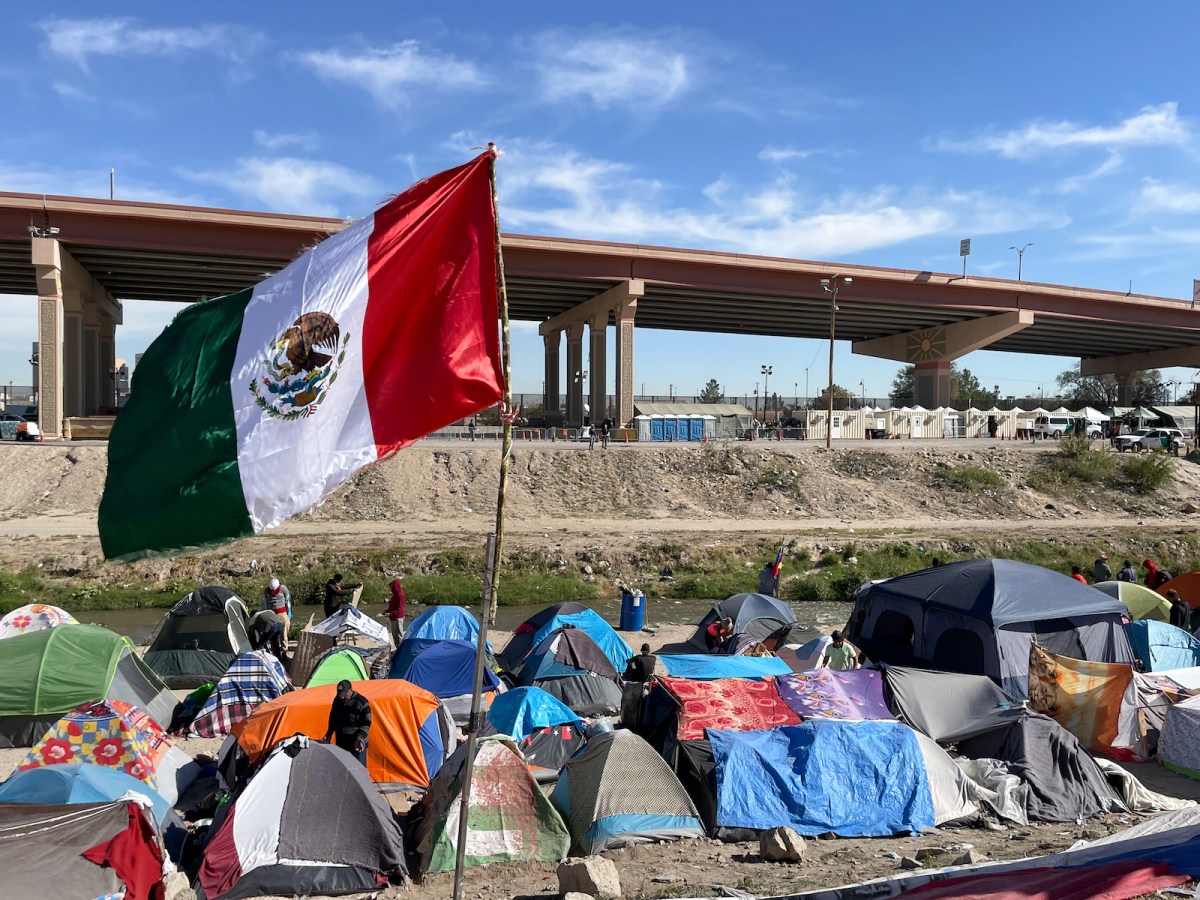It’s a sunny morning in Juarez, Mexico. We arrive at one of the bridges that unite Mexico and the United States, where dozens of migrant friends are living in the streets, paused in their journey to reach the US. Here, we deliver 200 warm burritos (with potatoes or eggs) and bottles of water for any who are hungry: adults, adolescents, and children; women and men; new friends from Venezuela, Honduras, Haiti, and more.
Our friends come to us for a burrito and a bottle of water. They smile and their eyes shine. They are grateful.
So many of those we meet this week are from Venezuela. There are already around 5,400 Venezuelans at the Mexico/US border, with around 200 more arriving every day. The Mexican government expects an additional 5000 Venezuelan asylum seekers to arrive within a couple of weeks. News spread quickly that the United States government has a plan to welcome 24,000 Venezuelan refugees. This is causing a rush north toward the border. What isn’t being shared as widely: refugee claimants must have a US sponsor, must apply for asylum online and outside the United States, and must fly into the country…not cross the border on foot like the thousands gathering around us.

After finishing the distribution, our team looks for an opportunity to learn from our friends and spend time with them. We go to a sidewalk close to some long, blue dumpsters, where we find Jorge, Ernesto, Juan de Dios, and Anthony, who have just finished their burritos.
Our friends have spent long days in the streets here, forced to endure hunger and sleeping at the side of the road during these cold autumn nights. Some of them have stuffy noses and cracked lips. Anthony confesses “the skin of my lips is cracked because of the cold. I can’t eat very well. My lips hurt me.”
Our four friends have come from Venezuela, where they faced huge challenges. “We’re family,” they tell me. Jorge, Ernesto, and Juan de Dios are young cousins and Anthony is their uncle.
“Why did you leave Venezuela?” we ask them. Our friends confess that the political situation is hard in their country. If they criticize the government, they are threatened. Arbitrary detentions and disappearances are some of the state crimes that our friends are afraid of. Beyond that, they face a growing list of needs in their homeland.
“The situation is so hard in Venezuela,” Jorge tells us. “It’s difficult to find a job, and once you find it, you aren’t paid—you can be there for three weeks without any payment. And once you are paid, the money isn’t enough. It’s incredible, in a country that has a lot of petroleum, the gas is so expensive… everything is so expensive!” Jorge isn’t exaggerating. The monthly minimum wage in Venezuela is around $30, but expenses are often equivalent to US prices.
Our friends decided to leave their homes and families, but their journey has not been easy. They were forced to cross the deadly Darian Gap and move through Central America. Corruption was one of the most frequent crimes they faced once they reached Guatemala. “The Guatemalan authorities ask you for a lot of money,” our friends mentioned. “The Guatemalan authorities ask us for money, but they ask for different amounts depending on the nationality. Haitians are the ones that have to pay more. They do not know the language and the authorities take advantage of that,” Jorge explains.
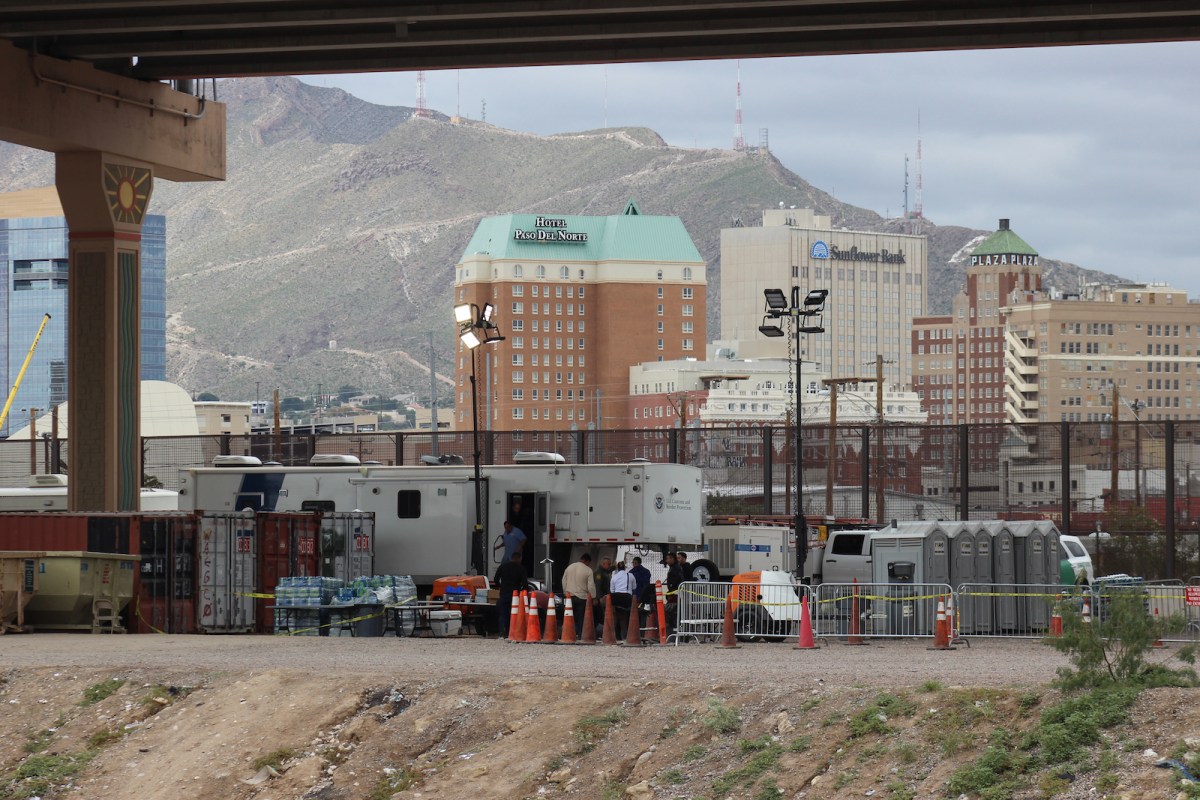
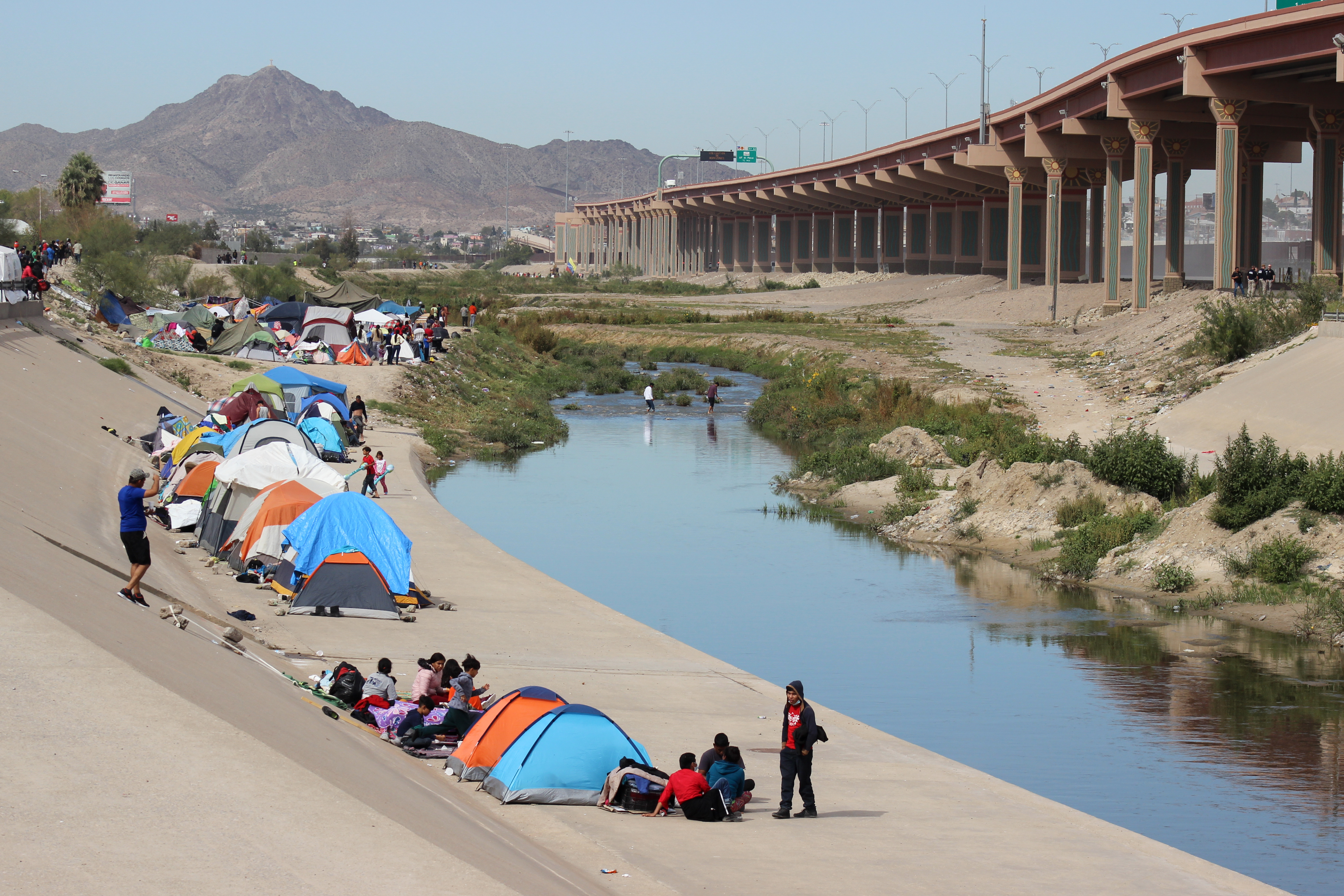
After arriving in Mexico, our friends were also the victims of fraud. At Mexico’s southern border they bought bus tickets to go to the northern border with the US, but the bus only brought them to a neighboring state, hundreds of miles away from their destination.
Our friends now live where we meet them, in the streets of Juarez, hoping to enter the US—a country in which they dream they will not suffer from political violence and hope they will find more opportunities. Jorge plays baseball and would like to become a professional player in the US. “I want to go to the US, study at a university, and become a player,” he confesses.
Jorge, Ernesto, Juan de Dios, and Anthony aren’t unique. They represent the millions of Venezuelans desperate to live safely and make a life for themselves. The only way to change the situation at the US southern border, for asylum seekers and for American residents in border states and beyond, is to change the story.
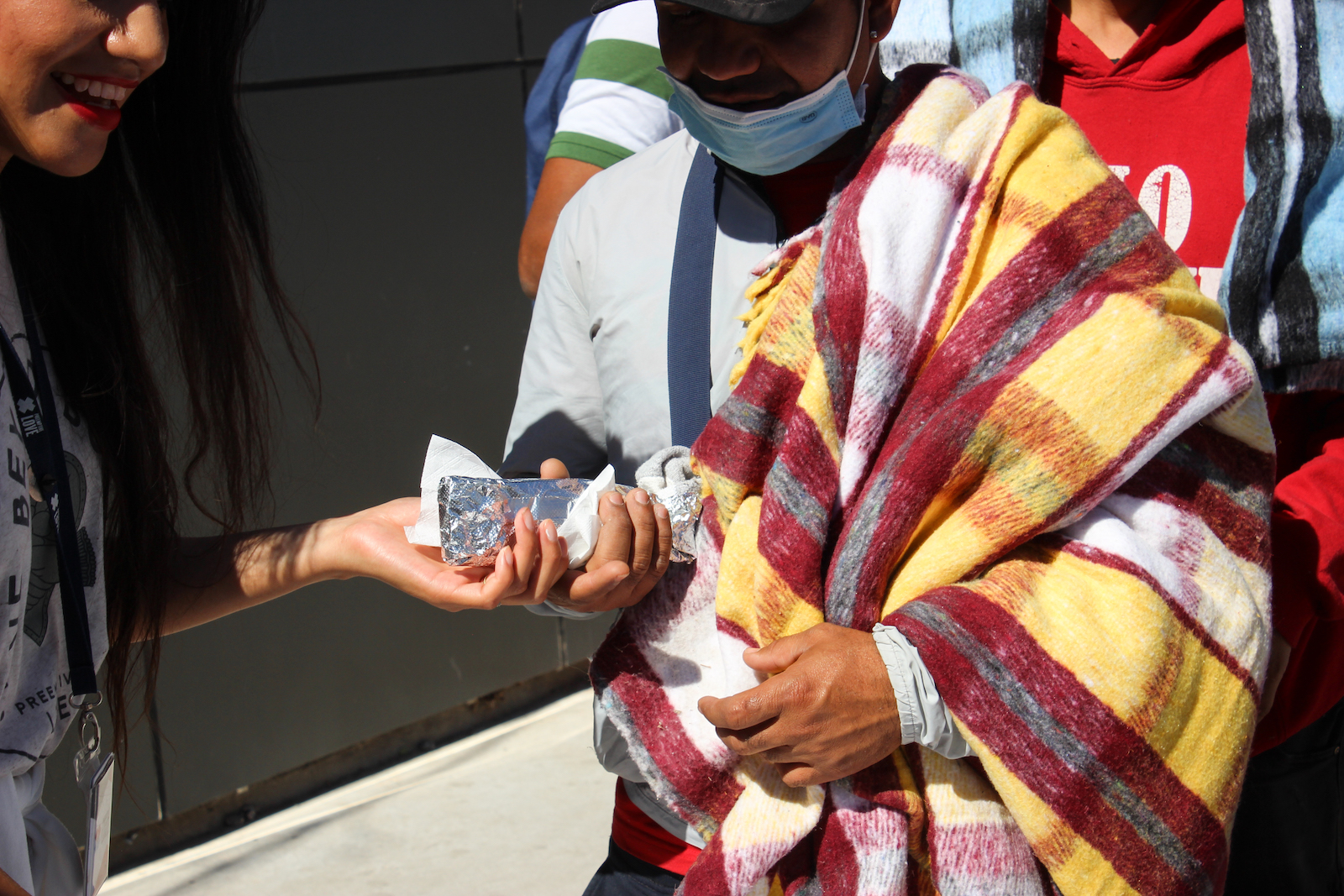
How Can We Change The Story at the US/Mexico border?
1. Respond to the unfolding crisis at northern Mexican border cities like Juarez.
We are showing up on the streets for hungry asylum seekers in crisis with food and water, milk and diapers for babies, blankets for all, and a desire to listen and learn about their lives. We are showing up for local shelters, providing fresh produce and hygiene supplies, when the demand for help is more than they can meet. We are showing up for those determined to make the most of their time waiting with educational workshops in skills that lead to jobs.
The hot meal we provide makes a difference for our new friends facing cold weather and hunger. “The burritos were great! The important thing is that they weren’t spicy!” Ernesto jokes. Food that doesn’t cause pain to those with cracked lips is one small way to show that we care.
2. Respond at Mexico’s southern border, before asylum seekers make the last push north.
Our migrant friends tell us over and over that they most want safety and the opportunity to provide for their families. Hollywood has spent trillions of dollars selling a story to the world that the United States is the best place for this to happen. Some asylum seekers are determined to attain that American dream. But most migrants are flexible—they are open to any safe place that can offer a measure of opportunity.
We are responding to families in southern Mexico with local partners, to help families endure the months required to apply for and secure the proper documentation to travel through the country legally.
For those living in shelters, we provide fresh produce and dignifying work in a nearby orchard helping to grow that food. For those who can’t find an empty shelter bed and are more vulnerable, we provide easy-to-carry food and childcare kits to make their situation a little less desperate. For those traveling with little ones, we provide baby wraps, so children can be carried safely, without the fear they will be hurt or lost along the way.
3. Respond in Venezuela, making it possible for vulnerable people to stay home.
The situation in Venezuela is so difficult, around 6 million people have left the country in hopes of finding a better life. Medical care, food, education, and jobs can be impossible to find, so that is exactly how we’re showing up.
Medical clinics (including free prescription medicine) and food packs have kept some of Venezuela’s most vulnerable healthy enough to continue on. Food for malnourished children and educational support to get them back into school prevent a future crisis larger than what is being experienced today. And what is perhaps our most challenging program in Venezuela, and the most critical to change the story for these communities, is jobs. We’re helping Venezuelans who have skills but not supplies to start businesses so they can take care of their families without fleeing home.
After we shake hands with our new friends–Jorge, Ernesto, Juan de Dios, and Anthony–and say goodbye to them, they smile at us. They thanked us one more time for the burritos and the water. Despite the challenges they have faced in their homeland and their journey, they are grateful to have found support when they needed it most.
Give today and join us, to change the story for asylum seekers at the border and beyond.

